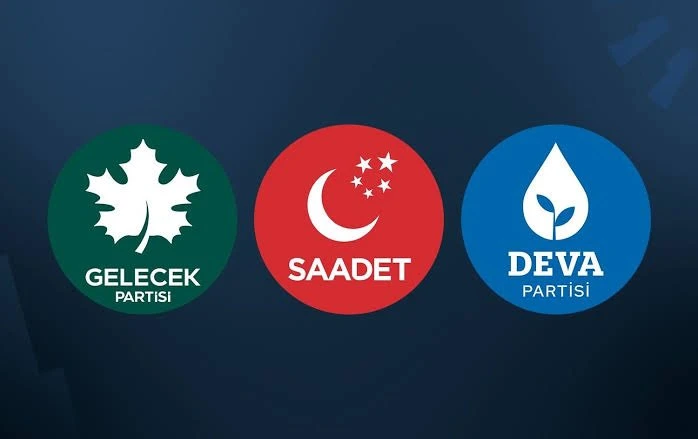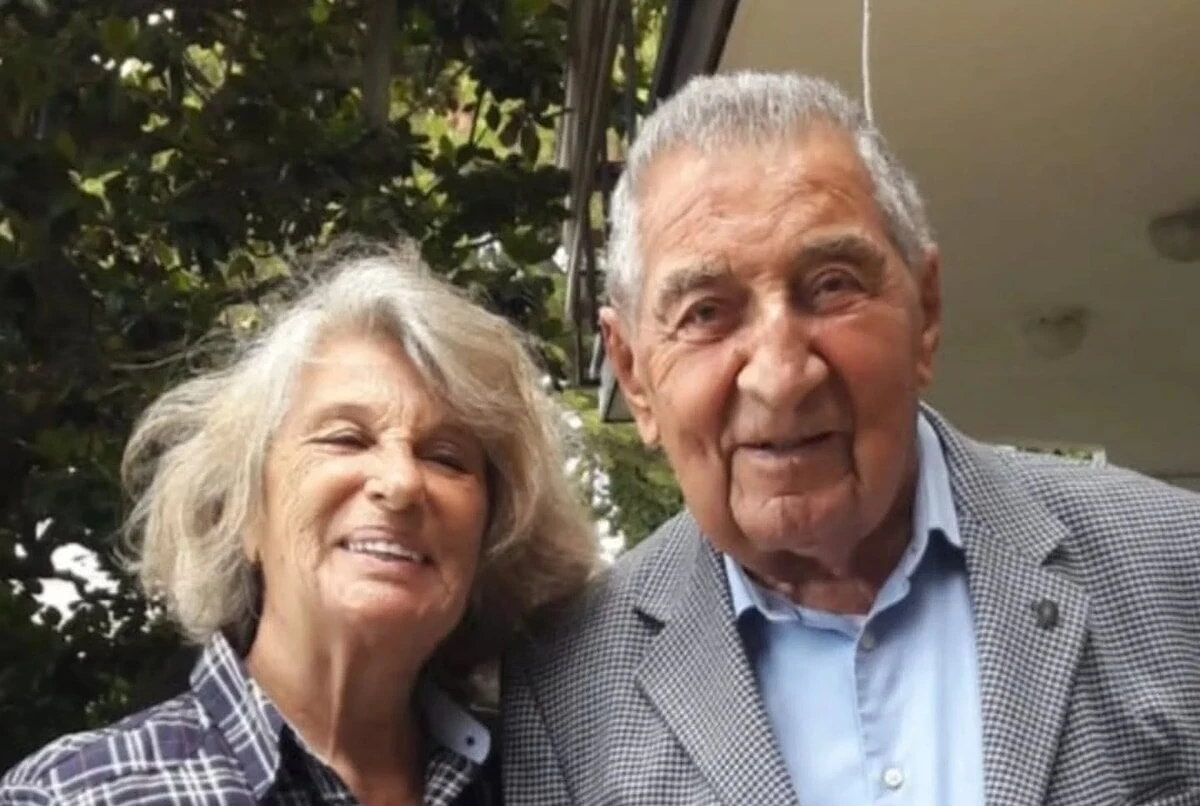3 parties unite to form ‘New Path’ bloc in Türkiye’s assembly
 Logos of Future Party (GP), Felicity Party (SP), and DEVA Party from left to right. (Photo via X/@trxhaber)
Logos of Future Party (GP), Felicity Party (SP), and DEVA Party from left to right. (Photo via X/@trxhaber)
In a significant development for Türkiye’s political landscape, three notable political parties—the DEVA Party, Future Party (GP), and Felicity Party (SP)—are merging under a single umbrella named “Yeni Yol” (New Path). The formal establishment of this political entity is expected in the coming days, with the founding petition set to be submitted to the Interior Ministry.
The merger represents a collective effort to strengthen influence in the Turkish Parliament. A joint parliamentary group will be established, bringing together representatives from all three parties. While maintaining their legal identities, the unified bloc seeks to offer voters an alternative to the current political polarization.
Symbolic structure of ‘New Path’
New Path is not a traditional political party in the conventional sense. It will operate with a symbolic leader, emphasizing parliamentary coordination rather than traditional party structures. Mustafa Yilmaz, vice president of the Felicity Party, speaking in an exclusive interview with Türkiye Today described the approach as one tailored to Türkiye’s unique political dynamics:
“This symbolic structure allows the three founding parties to maintain their organizational identities while benefiting from the parliamentary advantages of a united group.”
Yilmaz said the decision was driven by the practical challenges of maintaining independent parliamentary groups. He noted that the requirement of at least 20 members to form a group in the General Assembly had previously led to cooperation between the Felicity and Future parties. However, recent resignations disrupted this balance, leading to DEVA’s involvement.
Resignations amid unity
While the unification process highlights cooperation, it has also revealed internal tensions.
Several prominent DEVA members have resigned, citing dissatisfaction with the direction of the merger. Mustafa Yeneroglu, a DEVA MP from Istanbul, criticized his party’s leadership, saying: “The inertia of the DEVA Party has been deeply frustrating. This merger doesn’t align with the principles that initially brought me to this movement.”
Other notable resignations include former Minister of State responsible for Women and Family Affairs Selma Aliye Kavaf and Balikesir MP Burak Dalgin.
Despite the recent departures, the unified group is anticipated to have around 30 members, assuming no further resignations.

Electoral implications
Although the New Path Party will initially focus on parliamentary activities, discussions of a broader electoral alliance remain on the table. Yilmaz noted that the structure is flexible and could adapt to future electoral opportunities:
“For now, this is a parliamentary endeavor. However, turning this collaboration into an electoral alliance is not off the table.”
In Türkiye’s political landscape, where coalitions are pivotal, even smaller voter bases can have a significant impact on outcomes. The rise of “New Path” provides smaller political groups with strategic opportunities to influence coalition dynamics by aligning with the platform.
Türkiye’s center-right
The groundwork for the collaboration was laid long before the official announcement. Felicity Party’s Yilmaz highlighted that the origins of this unity can be traced back to the Table of Six initiative, a previous opposition coalition effort.
“During the Table of Six meetings, there was already a smaller, informal coalition between Davutoglu, Babacan, and Karamollaoglu. That bond set the foundation for what we’re seeing today with New Path.”
The Table of Six, formed during Türkiye’s last general elections, was an alliance of opposition parties aimed at challenging the ruling coalition. While it eventually dissolved, it fostered relationships among its participants that paved the way for deeper collaboration.
In Türkiye, the number of political alternatives for right-leaning voters is steadily increasing. Notably, the New Welfare Party (YRP) made a significant impact in recent elections, drawing votes from the ruling Justice and Development Party (AK Party) and Nationalist Movement Party (MHP) in various regions.
However, the newly forming platform’s prior reliance on the main opposition Republican People’s Party (CHP) to secure parliamentary representation, despite having 30 MPs, may pose a credibility challenge among certain segments of the society.



